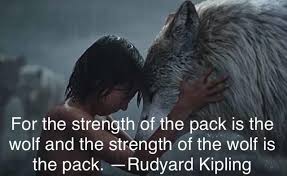“For the strength of the pack is the wolf, and the strength of the wolf is the pack” — Rudyard Kipling from the The Jungle Book.
As a volleyball club dad and a college recruiter, I spend a great deal of my nights and weekends in gyms watching practices and games. Having coached, recruited, and written about both for years, I’m always surprised and encouraged when I gain new insights into athlete growth and development.
This past weekend, as I observed different teams, my college coaching instincts kicked in. I found myself asking, Who here truly loves the game? Who has the right combination of passion, skills, and mindset to be a college recruit?
If I were a random college coach in the gym, which players would stand out to me? Who would I feel comfortable recruiting, potentially investing scholarship dollars in?
To answer these questions, I started categorizing the players based on how they warmed up, responded to mistakes, interacted with teammates and coaches, and even how they treated their parents after the game. From this, I identified five distinct categories of players:
The Five Types of Players
- The Freaks – These athletes move differently. Whether it’s lateral quickness, instincts, jumping ability, or sheer power, they stand out as physically exceptional.
- The Gym Rats – These are the kids who often have the highest sport IQ and genuinely love the game. Whether playing or watching, they are fully engaged and are not easily distracted. While others are exhausted at the end of the day, Gym Rats wish there were one more match to play.
- The Genetic Wonders – Before they even move, these players turn heads. Yes, height is a factor, but so is build. These are the kids that make you say, “Wow! You’re tall!” or “Holy cow, look at that wingspan!”
- The Grinders – These athletes weren’t gifted with elite size or speed, but they make up for it with relentless work ethic. Their toughness and grit set them apart.
- The Team Lovers – These are the heart and soul of a team. They thrive on camaraderie, crack jokes, lead cheers, and bring energy. They may not be the best players, but they make teams better simply by being part of them.
Who Would I Want to Coach?
As I categorized these players, I asked myself: Who would I want on my team? Who would fit together to create the perfect roster?
The truth is, very few players screamed college athlete. Granted, these were 15- and 16-year-olds who had been up since 5 AM to play all day, but that’s what being an athlete requires. The ones who rise above those challenges are the ones who get recruited.
I found myself wishing I could combine different traits: If only that freak athlete loved the game as much as that gym rat. I wish I could put that grinder’s heart into that genetic wonder’s body.
Becoming a Multiplier
This is what makes recruiting so difficult. And it’s also why getting recruited is so rare. If there are 100 players in a gym, maybe 7 or 8 will get the opportunity to play in college. It’s not just about numbers—it’s about finding the right combination of skills, mindset, and dedication.
At the college level, you can’t just fit into one category. You need to be a multiplier—someone who brings multiple dimensions to a team. The best recruits don’t just make an impact individually; they elevate those around them with their ability, effort, and energy.
If you want to be a college recruit, be more than just talented. Be the athlete who grinds, the competitor who loves the game, and the teammate who lifts others up. And don’t forget to have at least one Team Lover around—to remind everyone that, at the end of the day, this is a game. And games are supposed to be fun.
If you’ve enjoyed this blog and want to dive deeper into understanding motivation and personal growth, check out my book, Significant Recruiting: The Playbook for Prospective College Athletes. It provides valuable insights into the recruiting process and how athletes can take control of their journey.
Families and school administrators can also schedule a strategy session with me. Together, we can uncover what truly motivates you and develop a game plan for long-term success.






